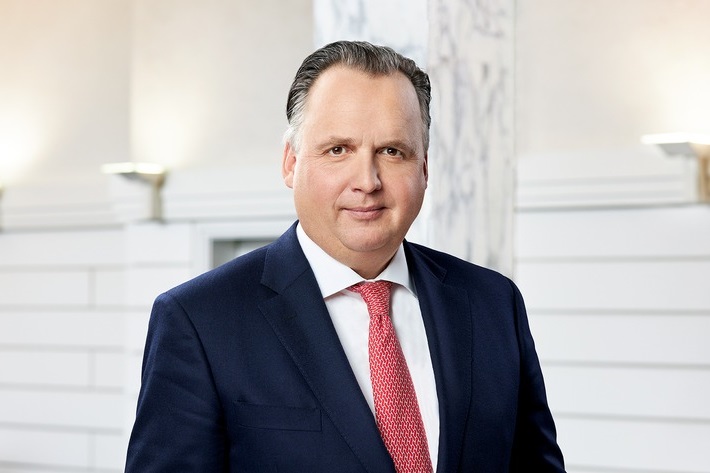– Net interest and commission income increase
– Assets under management and administration grow
– No negative impact of the pandemic on the loan book
– Agile and smooth conversion of work processes to decentralized structures
– Consistent focus on digitization and sustainability
M.M.Warburg & CO Gruppe GmbH (group parent company) with the independent private bank M.M.Warburg & CO (Warburg Bank), which is the focus of activities, was able to grow with state-of-the-art banking services even in the pandemic year 2020. The annual financial statements show successes in strategic core areas as well as in important key figures.
Joachim Olearius, spokesman for the partners: “The results of 2020 make it clear that we were able to expand our position in the market even in this difficult year thanks to the great commitment of all employees.”
Plus for assets under management and administration
The volume of assets under management and administration in the Group (Warburg Group) increased significantly: from EUR 69.8 billion in the previous year to EUR 76.2 billion in 2020. The disposal associated with the sale of the Swiss subsidiary Private Client Partners AG funds amounting to EUR 1.7 billion could be more than compensated. The custodian bank volume also increased – from EUR 30.2 billion in 2019 to EUR 33.9 billion in 2020. This results in a total of more than EUR 110 billion that is entrusted to the Warburg Group.
Net interest income and net commission income increased
The earnings situation of the Warburg Group developed positively: In 2020, net interest income increased by 14.5 percent to EUR 50.2 million (previous year: EUR 43.8 million) compared to the previous year. The net commission income also developed positively, growing by 2.2 percent in 2020 to EUR 154.3 million (EUR 150.9 million).
The increase in net interest income was achieved despite a reduction in risk-weighted assets, to which, among other things, reduced Bundesbank deposits and thus avoided negative interest rates contributed. In terms of net commission income, there was growth in income from the securities and custodian business, among other things.
Further information on the business development of the Warburg Group
Administrative expenses fell by 2.4 percent from EUR 199.4 million in the previous year to EUR 194.6 million in 2020, despite considerable consulting costs and increased investments, especially in IT structures. This was largely due to a decrease in personnel expenses. The net provision for individual risks in the lending business totaled EUR -22.4 million compared to EUR -79.8 million for 2019 and was again characterized by risk provisioning measures in relation to the non-strategic ship lending business. However, as early as the first quarter of 2021, the development in the shipping markets could be used to reduce the portfolio by 70 percent through sales. This will lead to a non-performing loan ratio of less than three percent in the current financial year.
The annual result before taxes amounted to EUR -6.7 million, an improvement of EUR 33.6 million compared to 2019 (EUR -40.3 million). Without taking into account the risk provisioning for ship financing, a positive result would have been reported for the 2020 financial year.
The cost / income ratio is 92.2 percent (previous year: 98.8 percent).
The consolidated balance sheet total increased by EUR 861 million to EUR 7,165 million (previous year: EUR 6,304 million). The main reason for the increase is borrowing from the Deutsche Bundesbank, which was invested in securities investments, among other things, as part of asset / liability management.
Capital ratios
Warburg Bank’s core capital ratio is 15.7 percent, a significant improvement on the previous year’s figure (14.7 percent). The same applies to the core capital ratio, which is 13.9 percent (13.1 percent). After the annual financial statements have been approved, the stated capital ratios will be 15.8 percent and 14.0 percent (15.8 percent and 14.1 percent).
The core capital ratio for the Warburg Group (regulatory group) is 10.3 percent and was slightly better than the previous year’s figure (10.0 percent). The same applies to the core capital ratio, which is 8.8 percent (previous year: 8.6 percent). After approval of the consolidated financial statements, the stated capital ratios will remain unchanged from the previous year at 10.7 and 9.2 percent respectively.
Employee
At around 5.4 percent, staff turnover was in line with planning in 2020 (previous year: 8.7 percent). At the end of 2020, the Warburg Group had 963 employees (previous year: 929).
Concentration completed
After the sale of the Swiss subsidiary Private Client Partners AG, the Warburg Group is now finally only active from locations in ten cities in Germany. The focus on internationally active clients, resident clients abroad and asset management with a global investment focus will be retained.
Sustainability as a future factor
In addition to digitalization, the future field of sustainability, which Warburg Bank continued to focus on in 2020, provided important impetus and stability. Sustainability aspects are firmly anchored in the business history in all business areas. ESG criteria are playing a role for more and more portfolios, both for private and institutional investors. Warburg’s special expertise in this area is shown, among other things, in the fact that the ESG-based Warburg Invest Global Challenges index fund was recognized by ECOreporter as “best in sustainability” in terms of performance. In April 2021, the fund reached a volume of more than EUR 400 million for the first time.
Joachim Olearius: “Growing parts of the assets entrusted to us are managed according to ESG criteria. We will continue to drive this development, which corresponds to the wishes of many customers and our own conviction, and thus contribute to a clean earth and sustainable growth through capital investments Afford.”
Strong research for stability in uncertain times
The firm anchoring of sustainability principles at Warburg goes hand in hand with a position that is unique in Germany in the area of capital market research for small and medium-sized enterprises (SMEs). With 23 analysts and more than 200 stocks covered, Warburg is the market leader in SME research and makes a significant contribution to the transparency and stability of the capital markets. Last year, the research team was expanded to include additional analysts and a new location in Frankfurt. The existing cooperation with the largest Polish bank PKO Bank Polski for the distribution of research to their customers in Poland, the Czech Republic and Hungary was supplemented by a further cooperation with the French bank CIC for the distribution of research services in France and North America.
Capital placements were again successfully secured in 2020 through the bank’s sales units.
Another unique position of Warburg is the outstanding macro research around Warburg chief economist Carsten Klude. For the third time, Carsten Klude and his team won the renowned Forecast Accuracy Award from Consensus Economics in 2020. The award evaluates the accuracy of economic forecasts.
Warburg’s equity research was also a great success. With 13 Refinitiv Starmine Analyst Awards, Warburg took the top spot in 2020. In addition to the quality of the share recommendations, the awards also distinguish the accuracy of earnings estimates for the 2019 stock market year.
Innovative digital products well received on the market
The consistent focus on the future field of digitization has proven itself. The digitization strategy was implemented more quickly in the wake of the pandemic. This has meant that all services could be provided in a stable manner and digital offers for customers were consistently expanded. With Vonovia SE’s digital bond, Warburg has for the first time participated as an exclusive investor in a new type of digital bond transaction via the blockchain.
Further online offers have particularly proven themselves in the Corona year 2020. The application OWNLY, which, as a digital family office, provides an overview of complex assets, mapped more than two billion euros in assets in 2020. In addition to the accounts and custody accounts at various banks, real estate assets and other assets are also included in the overview. The application will also be available to Warburg Private Banking customers as Warburg Family Finance in the course of 2021. The Warburg Navigator as digital asset management for private investors with lower investment volumes enables transparent access to the capital markets as a well-founded alternative to time-consuming, independent stock or fund selection, especially in times of low interest rates, and is increasingly in demand. All strategies in the Navigator can also be aligned according to sustainability criteria.
Joachim Olearius: “In times of low interest rates and possible inflation, it is important that investors receive transparent information about the capital markets at all times and then make well-founded decisions that are implemented quickly. We offer this with our digital offerings – even for smaller assets.”
The corona pandemic has triggered a crisis, the effects of which can currently hardly be estimated. An unprecedentedly loose monetary and fiscal policy and the rapidly developed vaccines are raising hopes that the economy will soon recover. During the crisis, many people in Germany amassed large savings. This could result in great demand in the future as soon as the corona situation eases. Then, after the high national debt, there is also a return to a solid financial policy. The enormous debt, however, suggests that central banks will keep interest rates low for a long time to come.
In 2021, the stock markets will continue to be under the impact of the pandemic – very positively so far: The low interest rate environment will mean that share purchases, actively managed funds as well as exchange traded funds (ETF) and derivatives are increasingly replacing traditional savings products such as overnight money accounts. A boom in savings plans is imminent for long-term investors. Individual advice from experienced private customer advisors remains of great importance in this environment. This responsible service cannot be replaced by new providers such as neobrokers. Experienced digital asset managers – such as Warburg Navigator – will experience an upturn in this market environment. In addition, the ecological, social and societal benefits of financial products are becoming more and more important for many investors after the crisis. The number of ESG issuers and investment products will continue to grow.
The capital market business has also shown positive development since the beginning of the year. The corporate finance experts at Warburg Bank already supported extensive capital measures for German companies in the first few months of 2021. For example, the electronics service provider Katek Group received support with its successful IPO and the rail technology group Vossloh with the placement of a hybrid bond for EUR 150 million. In the lending business, Warburg is currently placing an extensive portfolio with institutional investors. After the crisis years, a sustained recovery can be recorded for the shipping markets. In view of the current strong development as well as the considerable value corrections that have cost taxpayers billions, especially at Landesbanken, the question arises whether it was right to make the corrections under great time pressure. Last but not least, as a result of the restructuring, Germany’s maritime economy has suffered great damage and has lost its importance in international competition.
After the state pandemic aid expires, it will become clear in the near future which companies – and which banks – will survive the crisis. M.M.Warburg & CO has proven its stability in 223 years and will emerge stronger from the challenges of this time.
Excursus: Paying tax claims

